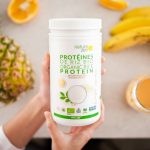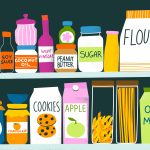How to Meal Prep for a Week of Easy, Nutritious Eating: Simple Strategies for Success
Special Dietary Considerations
When planning a week of meal prep, it’s important to consider specific dietary restrictions and preferences to ensure everyone can enjoy nutritious, catered meals.
Vegan and Vegetarian Options
For those following a vegan or vegetarian diet, incorporating a variety of plant-based proteins such as beans, chickpeas, and lentils is essential. These ingredients not only add substance but also provide necessary nutrients like protein, iron, and fiber.
We can prepare dishes like chickpea salad, black bean tacos, and lentil soups. Roasted veggies and tofu stir-fries can also add diversity and flavor to our meal plans. Including plenty of leafy greens, whole grains, and nuts will help round out the nutritional profile of our meal prep, ensuring balanced meals throughout the week.
Low Sodium and Sugar Alternatives
Reducing sodium and added sugars in our diets can be crucial for those with health conditions such as hypertension or diabetes. When preparing meals, we need to focus on fresh, whole ingredients and avoid processed foods which often contain high levels of sodium and sugars.
We can use spices and herbs to enhance flavors without relying on salt. Incorporating natural sweeteners like fruit, honey, or maple syrup instead of white sugar can make our dishes healthier. Additionally, preparing homemade dressings and sauces allows us to control the amount of sodium and sugar in our meals. This careful attention to ingredients ensures our meals are both tasty and suitable for those monitoring their sodium and sugar intake.
Preserving Your Meals
Keeping your meals fresh throughout the week involves proper storage techniques. Attention to refrigeration and freezing can make a significant difference in maintaining quality and safety.
Refrigeration Tips
Proper refrigeration is critical for extending the life of your prepared meals. Use airtight food storage containers to keep out moisture and bacteria. It’s essential to store different food types correctly; for instance, meats should be placed on lower shelves to avoid cross-contamination, and vegetables should be stored in crisper drawers to maintain their freshness.
Labeling containers with dates helps in monitoring how long the food has been stored, reducing the risk of consuming spoiled items. We recommend keeping a maximum of three to five days of meals in the fridge to ensure they remain safe to eat.
Freezer-Friendly Preparations
For longer shelf life, certain freezer-friendly meals are ideal. Foods such as soups, stews, and casseroles freeze particularly well. Using food storage containers designed for freezing can prevent freezer burn and maintain meal quality. Ensure meals are cooled before freezing to avoid raising the freezer’s temperature and compromising other stored items.
Portioning meals before freezing them helps in thawing only what you need, reducing food waste. Keeping a list of what’s stored in the freezer allows for easier meal planning and efficient use of space. Allow frozen meals to thaw in the fridge overnight for best results, ensuring even and safe defrosting.
Meal Prep Tips and Tricks
Meal prepping can streamline our weekly cooking and help maintain a nutritious diet. To start, it’s crucial to have a well-stocked pantry. Maintaining a baseline stock of essentials like grains, canned goods, and spices simplifies meal prep and menu creation.
Using extra fruits and vegetables for easy weekday snacking is beneficial. We like to clean and prep these in Mason jars, making them convenient for quick grabs throughout the week. This not only saves time but ensures we have healthy options readily available.
By sticking to a shopping list, we avoid unnecessary purchases and stay focused on our meal prepping needs. Shopping on a full stomach can help resist the temptation to buy unhealthy snacks that derail our meal planning goals.
Batch cooking is also a time-saver. Preparing large quantities of meals like soups, stews, or casseroles can provide us with multiple servings for the week. Freezing portions for later use ensures variety without the daily cooking hassle.
Investing in quality storage containers is essential. Containers that are durable, stackable, and leak-proof keep our prepped meals fresh and organized. Clear containers help us see what’s inside, reducing the likelihood of forgotten leftovers.
Finally, dedicating time to plan our meals each week makes a significant difference. Setting aside a specific day for meal prep allows for a smoother, more efficient process. This planning phase helps us balance our diet and ensures we meet our nutritional needs.



